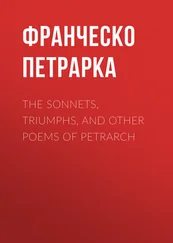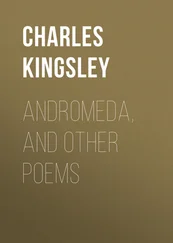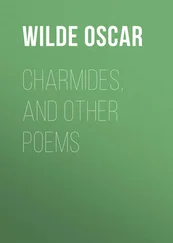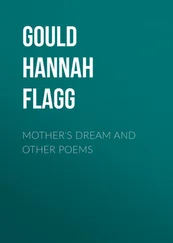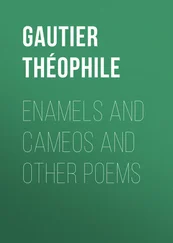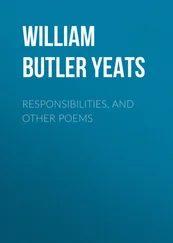Lewis Carroll - Phantasmagoria and Other Poems
Здесь есть возможность читать онлайн «Lewis Carroll - Phantasmagoria and Other Poems» весь текст электронной книги совершенно бесплатно (целиком полную версию без сокращений). В некоторых случаях можно слушать аудио, скачать через торрент в формате fb2 и присутствует краткое содержание. Жанр: Юмористические стихи, на английском языке. Описание произведения, (предисловие) а так же отзывы посетителей доступны на портале библиотеки ЛибКат.
- Название:Phantasmagoria and Other Poems
- Автор:
- Жанр:
- Год:неизвестен
- ISBN:нет данных
- Рейтинг книги:3 / 5. Голосов: 1
-
Избранное:Добавить в избранное
- Отзывы:
-
Ваша оценка:
- 60
- 1
- 2
- 3
- 4
- 5
Phantasmagoria and Other Poems: краткое содержание, описание и аннотация
Предлагаем к чтению аннотацию, описание, краткое содержание или предисловие (зависит от того, что написал сам автор книги «Phantasmagoria and Other Poems»). Если вы не нашли необходимую информацию о книге — напишите в комментариях, мы постараемся отыскать её.
Phantasmagoria and Other Poems — читать онлайн бесплатно полную книгу (весь текст) целиком
Ниже представлен текст книги, разбитый по страницам. Система сохранения места последней прочитанной страницы, позволяет с удобством читать онлайн бесплатно книгу «Phantasmagoria and Other Poems», без необходимости каждый раз заново искать на чём Вы остановились. Поставьте закладку, и сможете в любой момент перейти на страницу, на которой закончили чтение.
Интервал:
Закладка:
Echoes
LADY Clara Vere de Vere
Was eight years old, she said:
Every ringlet, lightly shaken, ran itself in golden thread.
She took her little porringer:
Of me she shall not win renown:
For the baseness of its nature shall have strength to drag her down.
"Sisters and brothers, little Maid?
There stands the Inspector at thy door:
Like a dog, he hunts for boys who know not two and two are four."
"Kind words are more than coronets,"
She said, and wondering looked at me:
"It is the dead unhappy night, and I must hurry home to tea."
A Sea Dirge
THERE are certain things – as, a spider, a ghost,
The income-tax, gout, an umbrella for three –
That I hate, but the thing that I hate the most
Is a thing they call the Sea.
Pour some salt water over the floor –
Ugly I'm sure you'll allow it to be:
Suppose it extended a mile or more,
THAT'S very like the Sea.
Beat a dog till it howls outright –
Cruel, but all very well for a spree:
Suppose that he did so day and night,
THAT would be like the Sea.
I had a vision of nursery-maids;
Tens of thousands passed by me –
All leading children with wooden spades,
And this was by the Sea.
Who invented those spades of wood?
Who was it cut them out of the tree?
None, I think, but an idiot could –
Or one that loved the Sea.
It is pleasant and dreamy, no doubt, to float
With 'thoughts as boundless, and souls as free':
But, suppose you are very unwell in the boat,
How do you like the Sea?
There is an insect that people avoid
(Whence is derived the verb 'to flee').
Where have you been by it most annoyed?
In lodgings by the Sea.
If you like your coffee with sand for dregs,
A decided hint of salt in your tea,
And a fishy taste in the very eggs –
By all means choose the Sea.
And if, with these dainties to drink and eat,
You prefer not a vestige of grass or tree,
And a chronic state of wet in your feet,
Then – I recommend the Sea.
For I have friends who dwell by the coast –
Pleasant friends they are to me!
It is when I am with them I wonder most
That anyone likes the Sea.
They take me a walk: though tired and stiff,
To climb the heights I madly agree;
And, after a tumble or so from the cliff,
They kindly suggest the Sea.
I try the rocks, and I think it cool
That they laugh with such an excess of glee,
As I heavily slip into every pool
That skirts the cold cold Sea.
Ye Caroette Knyghte
I have a horse – a ryghte good horse –
Ne doe Y envye those
Who scoure ye playne yn headye course
Tyll soddayne on theyre nose
They lyghte wyth unexpected force
Yt ys – a horse of clothes.
I have a saddel – "Say'st thou soe?
Wyth styrruppes, Knyghte, to boote?"
I sayde not that – I answere "Noe" –
Yt lacketh such, I woote:
Yt ys a mutton-saddel, loe!
Parte of ye fleecye brute.
I have a bytte – a ryghte good bytte –
As shall bee seene yn tyme.
Ye jawe of horse yt wyll not fytte;
Yts use ys more sublyme.
Fayre Syr, how deemest thou of yt?
Yt ys – thys bytte of rhyme.
Hiawatha's Photographing
In an age of imitation, I can claim no special merit for this slight attempt at doing what is known to be so easy. Any fairly practised writer, with the slightest ear for rhythm, could compose, for hours together, in the easy running metre of 'The Song of Hiawatha.' Having, then, distinctly stated that I challenge no attention in the following little poem to its merely verbal jingle, I must beg the candid reader to confine his criticism to its treatment of the subject.
FROM his shoulder Hiawatha
Took the camera of rosewood,
Made of sliding, folding rosewood;
Neatly put it all together.
In its case it lay compactly,
Folded into nearly nothing;
But he opened out the hinges,
Pushed and pulled the joints and hinges,
Till it looked all squares and oblongs,
Like a complicated figure
In the Second Book of Euclid.
This he perched upon a tripod –
Crouched beneath its dusky cover –
Stretched his hand, enforcing silence –
Said, "Be motionless, I beg you!"
Mystic, awful was the process.
All the family in order
Sat before him for their pictures:
Each in turn, as he was taken,
Volunteered his own suggestions,
His ingenious suggestions.
First the Governor, the Father:
He suggested velvet curtains
Looped about a massy pillar;
And the corner of a table,
Of a rosewood dining-table.
He would hold a scroll of something,
Hold it firmly in his left-hand;
He would keep his right-hand buried
(Like Napoleon) in his waistcoat;
He would contemplate the distance
With a look of pensive meaning,
As of ducks that die in tempests.
Grand, heroic was the notion:
Yet the picture failed entirely:
Failed, because he moved a little,
Moved, because he couldn't help it.
Next, his better half took courage;
SHE would have her picture taken.
She came dressed beyond description,
Dressed in jewels and in satin
Far too gorgeous for an empress.
Gracefully she sat down sideways,
With a simper scarcely human,
Holding in her hand a bouquet
Rather larger than a cabbage.
All the while that she was sitting,
Still the lady chattered, chattered,
Like a monkey in the forest.
"Am I sitting still?" she asked him.
"Is my face enough in profile?
Shall I hold the bouquet higher?
Will it came into the picture?"
And the picture failed completely.
Next the Son, the Stunning-Cantab:
He suggested curves of beauty,
Curves pervading all his figure,
Which the eye might follow onward,
Till they centered in the breast-pin,
Centered in the golden breast-pin.
He had learnt it all from Ruskin
(Author of 'The Stones of Venice,'
'Seven Lamps of Architecture,'
'Modern Painters,' and some others);
And perhaps he had not fully
Understood his author's meaning;
But, whatever was the reason,
All was fruitless, as the picture
Ended in an utter failure.
Next to him the eldest daughter:
She suggested very little,
Only asked if he would take her
With her look of 'passive beauty.'
Her idea of passive beauty
Was a squinting of the left-eye,
Was a drooping of the right-eye,
Was a smile that went up sideways
To the corner of the nostrils.
Hiawatha, when she asked him,
Took no notice of the question,
Looked as if he hadn't heard it;
But, when pointedly appealed to,
Smiled in his peculiar manner,
Coughed and said it 'didn't matter,'
Bit his lip and changed the subject.
Nor in this was he mistaken,
As the picture failed completely.
So in turn the other sisters.
Интервал:
Закладка:
Похожие книги на «Phantasmagoria and Other Poems»
Представляем Вашему вниманию похожие книги на «Phantasmagoria and Other Poems» списком для выбора. Мы отобрали схожую по названию и смыслу литературу в надежде предоставить читателям больше вариантов отыскать новые, интересные, ещё непрочитанные произведения.
Обсуждение, отзывы о книге «Phantasmagoria and Other Poems» и просто собственные мнения читателей. Оставьте ваши комментарии, напишите, что Вы думаете о произведении, его смысле или главных героях. Укажите что конкретно понравилось, а что нет, и почему Вы так считаете.



